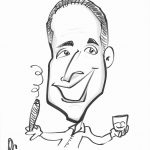Patent Agent Privilege In The Spotlight
Licensees are required by Rule 1-5 of the Code of Professional Conduct (the “Code”) to keep abreast of developments in the law that relate to patent agent privilege and trademark agent privilege.
On April 21, 2023 decision of the Federal Court in Boehringer Ingelheim (Canada) Ltd. v Pharmascience Inc. explored the meaning and applicability of patent agent privilege.
The Plaintiffs, Boehringer Ingelheim (Canada) Ltd. et al, redacted information before disclosing documents to the Defendant Pharmascience Inc.
Some redactions were made on the basis or claim of patent agent privilege.
In this decision, the Court made determinations with respect to the applicability of patent agent privilege.
Boehringer Ingelheim (Canada) Ltd. v Pharmascience Inc. was decided by Associate Judge Trent Horne – the same judge who made the decision with respect to patent agent privilege in Janssen Inc v Sandoz Canada Inc, 2021 FC 1265.
In Boehringer Ingelheim (Canada) Ltd. v Pharmascience Inc. Trent stated:
“The text of subsection 16.1(1)(c) of the Patent Act attaches privilege to any matter relating to the protection of an invention. It is not limited to circumstances where an application has been filed, or is pending” (paragraph 50).
“I cannot accept Pharmascience’s submission that the filing of a patent application, or clear instructions to a patent professional to draft one, is a necessary precondition [to patent agent privilege applying]” (paragraph 52).
“I have particular difficulty with Pharmascience’s submission that where a patent application is rejected by [the Canadian Intellectual Property Office (CIPO)], or is voluntarily withdrawn by the applicant, patent agent privilege would not apply.
I do not agree with Pharmascience that there cannot be an “invention” unless and until CIPO issues a patent.
The text of section 16.1 does not support an interpretation that privilege can be gained or lost depending on the existence or status of a patent application, or that an ‘invention’ only exists for the purposes of that section if a patent application has been clearly instructed, is pending, or a patent has issued.” (paragraph 54)
“I reach the same conclusion when considering section 16.1 in the context of the Patent Act.
‘Invention’ is defined in section 2 to mean ‘any new and useful art, process, machine, manufacture or composition of matter, or any new and useful improvement in any art, process, machine, manufacture or composition of matter’.
Patent means ‘letters patent for an invention’.
Had the legislature intended to restrict patent agent privilege to only live applications or issued patents, it would have expressly said so.” (paragraph 55).
“Limiting patent agent privilege to only apply in circumstances where a client instructs a patent agent to file and maintain an application could be a disincentive to retain an agent.
There would be uncertainty as to if and for how long any privilege would apply.
A cautious client may be inclined to avoid the uncertainty, and maintain an invention as a trade secret.
This would be contrary to the central objectives of the Patent Act described above.” (paragraph 57).
The Boehringer Ingelheim (Canada) Ltd. v Pharmascience Inc. decision contends that agent-client privilege is not dependent on the filing of an application, nor is it dependent on whether an application is ultimately successful with CIPO.

Visit our Services page to learn more about Pnc IP Group’s Patent services. If you have questions regarding the above, feel free to contact us.
Any patents, trademarks, or technologies referenced in this article are owned by their respective owners.
Questions regarding this article can be directed to Tapas Pain.
Pnc IP Group are licensed lawyers and registered patent and trademark agents with a history of serving the greater York Region, greater Toronto area since 2003.
Pnc IP Group is located in Vaughan, Ontario, and offers in-person visits by appointment.
Call us and book your appointment today, or speak with us by telephone anytime.
Your calls are always welcome, and never hesitate to ask us your questions.
These articles and opinions do not express or constitute legal advice.




